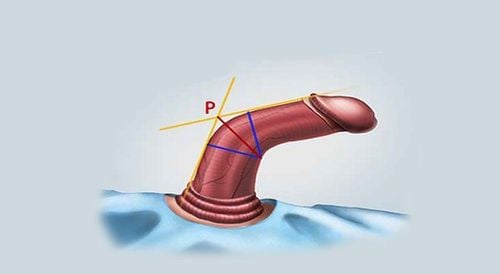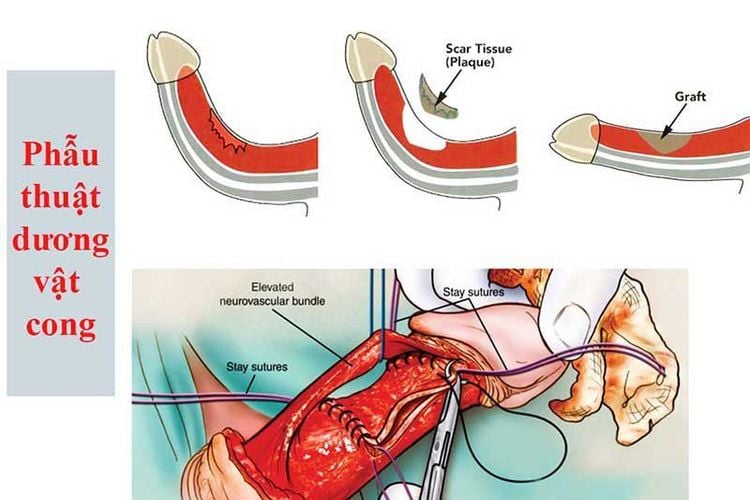Penile curvature occurs when scar tissue forms under the penile skin, causing deformation. Men living with this condition often worry about whether a curved penis can affect intercourse and experience pain during sex. Understanding this condition, including potential causes and treatment options, can help manage its impact effectively.
1. What causes penile curvature?
Penile curvature, also known as Peyronie's disease, results from fibrous scar tissue forming beneath the skin of the penis. This condition cause the penis to bend and result in pain, making sexual intercourse difficult or impossible. Unlike the fatty plaques that accumulate in blood vessels, Peyronie's plaques are fibrous and form within the penile tissue.
While the exact cause of Peyronie's disease is unclear, contributing factors may include high cholesterol, diabetes, erectile dysfunction, or localized penile microtrauma.

2. Can a curved penis affect sexual intercourse?
Penile curvature is reported in approximately 6% of men aged 40 to 70. Some symptoms may resolve without treatment, and not all men with the condition experience pain or sexual dysfunction, even if the curvature significantly alters the penis's shape.
However, erectile dysfunction is more common in men with Peyronie's disease. This may be due to the fibrous scar tissue making it harder to achieve or maintain an erection. Additionally, nerve or blood vessel damage caused by inflammation or trauma linked to Peyronie's disease may also limit erectile function.
As a result, many men with Peyronie's disease experience anxiety and depression, compounding challenges with sexual performance. Pain during erections, especially during the disease's active phase, can further contribute to erectile dysfunction.
3. Does a curved penis affect the partner?
Peyronie's disease often causes discomfort during erections, potentially making sexual intercourse uncomfortable for the partner as well.
A 2020 study found that nearly half of female partners of men with Peyronie's disease experienced moderate pain or discomfort during vaginal intercourse. In some cases, couples were unable to engage in certain sexual activities they previously enjoyed.
Although discussing Peyronie's disease is challenging, communication and empathy are essential to maintain intimacy. Exploring new sexual positions or forms of intimacy beyond intercourse can help both partners achieve satisfaction.
4. Treatment options for penile curvature
Treatment options for Peyronie's disease include medication injections, surgery, or penile implants, with the primary goal of reducing curvature and improving sexual function.
However, not all men with Peyronie's disease require treatment. If pain is the primary symptom, over-the-counter pain relievers, such as nonsteroidal anti-inflammatory drugs (NSAIDs), can be useful for achieving more comfortable erections.
Additionally, there are several surgical and non-surgical approaches for treating Peyronie's disease. These treatments primarily aim to correct the curvature and break down fibrous scar tissue. Some options also enhance the partner’s sexual satisfaction:
- Partner satisfaction increased from 34% to 88% after penile plication surgery.
- Satisfaction rates reached 90% to 100% following plaque incision with partial excision and grafting.
- Improvements were reported in 40% to 75% of cases after penile implant surgery, typically reserved for severe Peyronie's disease accompanied by erectile dysfunction.
It is worth noting that existing research mainly focuses on female partners of men with Peyronie's disease. Further studies are necessary to understand how the condition and its treatments might affect partners of other genders.

5. Preventive measures to avoid penile curvature
Men and their partners can adopt certain measures to minimize the risk of developing Peyronie's disease:
Treat erectile dysfunction early: Men often consult a doctor only when erectile dysfunction severely affects sexual activity. Instead, treatment should begin as soon as there are signs of reduced erectile quality (e.g., a 5, 6, or 7 on a scale of 10) to prevent Peyronie's disease. Gradual loss of erection firmness is often a precursor to the condition.
- Use lubricants: If the female partner does not produce sufficient natural vaginal lubrication, using over-the-counter lubricants can help prevent injury during intercourse.
- Avoid risky positions: Certain positions, such as the woman-on-top position, may cause excessive curvature of the penis.
- Be cautious during thrusting: Avoid movements that may cause the penis to bend during vigorous thrusting. Use hands to guide the penis back into the vagina if it slips out during intercourse.
- Avoid intercourse under unfavorable conditions: Refrain from sexual activity when overtired, acutely ill, or after consuming excessive alcohol, as erections may not be firm enough to prevent bending.
In summary, a curved penis can significantly impact a man's sexual health and the comfort of his partner during intercourse. Instead of fixating on concerns like “is penile curvature dangerous?”, men should actively seek information about treatment options, engage in open communication with their partner, and consult specialists to minimize the condition's impact on sexual function.
Please dial HOTLINE for more information or register for an appointment HERE. Download MyVinmec app to make appointments faster and to manage your bookings easily.













